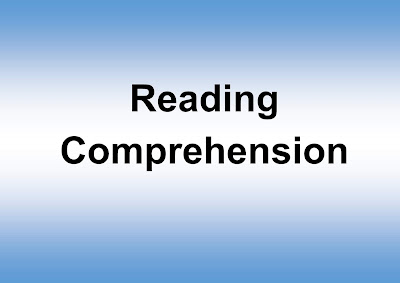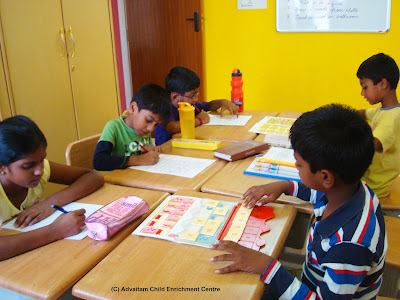Effectiveness of STEM education for Children
At Advaitam Child Enrichment Centre, one of our flagship courses is the Young Scientist program. This program is designed with the intention of generating interest of children in STEM (science, Technology, Engineering and Math) from a young age.
There are quite a few institutes in India who have taken up STEM education for children. Based on my experiences in teaching STEM to children, one key challenge is how this learning can become part of the child's subconscious memory or, if I may call, permanent learning.
Recently there has been a lot of focus and to some extent hype on the philosophy of "Learn by doing". Children are doing hands on experiments and understanding the science concepts. They are learning different topics of STEM by complete hands on approach. Many such programs, unfortunately, come with a fixed end date. Parents approach these types of programs as a one-time investment. The child learns a lot while the program is in progress. However, once the program gets over, the child starts losing touch and eventually the learning is not total.
One way of achieving longer "persistence of learning" is through continuous exposure of the child to the concept. This would mean the child gets enough "open" time to play around with the concept. During this period, the child pushes the limit till the concept passes all the tests which the child puts it through. This can also be called the "What-if" phase. Once the child is comfortable on the concept the next stage is to help others in trouble shooting any issues. This is where the child applies personal experience and learning to a 3rd person situation. This, I feel, is the stage when learning becomes permanent. This can also be termed as the teaching phase. Finally comes the reflection phase when the child uses this learning as a reference in other projects/activities. Here the child keeps referring back the earlier learning and applies it to new situations.
Open ended activities encourage a child to do activities and challenge themselves. This is great way of building their unique personality and core reasoning skills. India's schooling system is evolving to these realities. I feel the schools may not have enough resources for such an comprehensive approach. After school programs definitely can bridge this gap. Children spend 6 - 7 hours in school. Hence the comprehensive and focused approach works well in after school and weekend programs. A totally open and relaxed environment definitely goes a long way in capturing a childs imagination.
Website: http://www.advaitam.in
Activities: http://www.advaitam.in/home/after-school-activity-for-kids-hsr-bangalore
Facebook: https://www.facebook.com/ADVAITAM.IN/
Instagram: https://www.instagram.com/advaitamhsr/
Twitter: https://twitter.com/advaitam_in
LinkedIN: https://in.linkedin.com/company/advaitam-child-enrichment-centre
There are quite a few institutes in India who have taken up STEM education for children. Based on my experiences in teaching STEM to children, one key challenge is how this learning can become part of the child's subconscious memory or, if I may call, permanent learning.
Recently there has been a lot of focus and to some extent hype on the philosophy of "Learn by doing". Children are doing hands on experiments and understanding the science concepts. They are learning different topics of STEM by complete hands on approach. Many such programs, unfortunately, come with a fixed end date. Parents approach these types of programs as a one-time investment. The child learns a lot while the program is in progress. However, once the program gets over, the child starts losing touch and eventually the learning is not total.
One way of achieving longer "persistence of learning" is through continuous exposure of the child to the concept. This would mean the child gets enough "open" time to play around with the concept. During this period, the child pushes the limit till the concept passes all the tests which the child puts it through. This can also be called the "What-if" phase. Once the child is comfortable on the concept the next stage is to help others in trouble shooting any issues. This is where the child applies personal experience and learning to a 3rd person situation. This, I feel, is the stage when learning becomes permanent. This can also be termed as the teaching phase. Finally comes the reflection phase when the child uses this learning as a reference in other projects/activities. Here the child keeps referring back the earlier learning and applies it to new situations.
Open ended activities encourage a child to do activities and challenge themselves. This is great way of building their unique personality and core reasoning skills. India's schooling system is evolving to these realities. I feel the schools may not have enough resources for such an comprehensive approach. After school programs definitely can bridge this gap. Children spend 6 - 7 hours in school. Hence the comprehensive and focused approach works well in after school and weekend programs. A totally open and relaxed environment definitely goes a long way in capturing a childs imagination.
Website: http://www.advaitam.in
Activities: http://www.advaitam.in/home/after-school-activity-for-kids-hsr-bangalore
Facebook: https://www.facebook.com/ADVAITAM.IN/
Instagram: https://www.instagram.com/advaitamhsr/
Twitter: https://twitter.com/advaitam_in
LinkedIN: https://in.linkedin.com/company/advaitam-child-enrichment-centre








Comments
Post a Comment